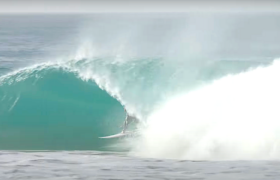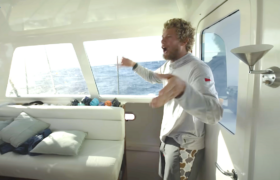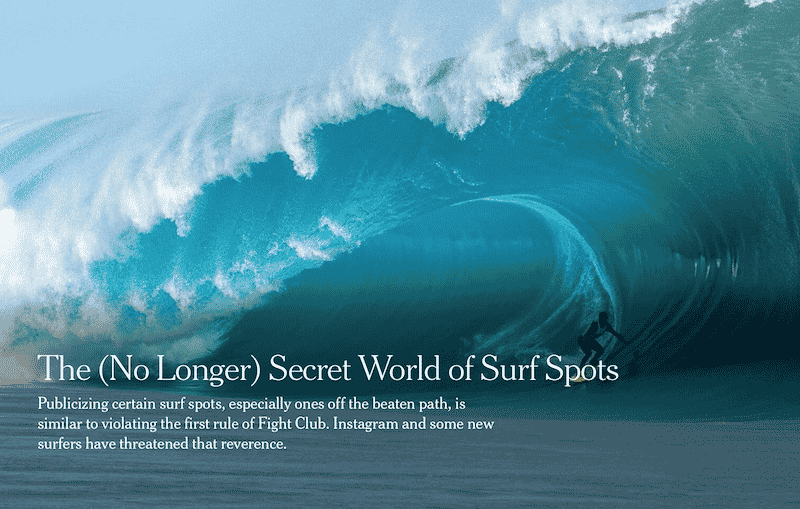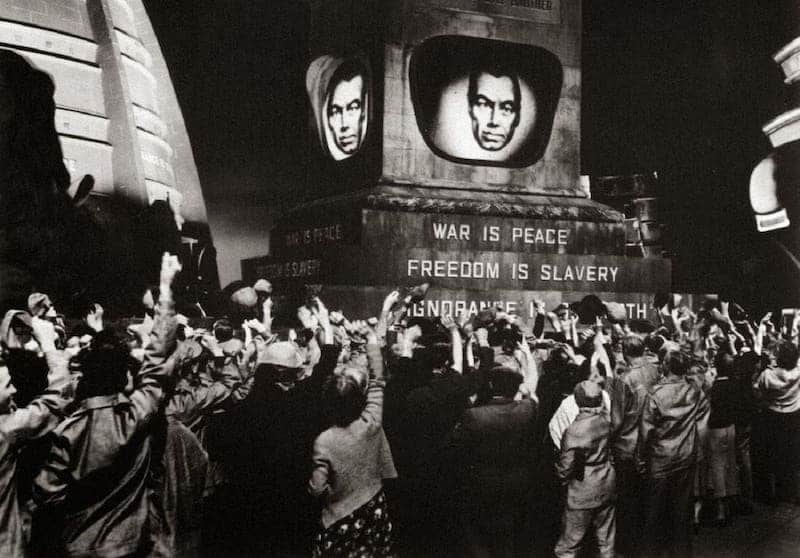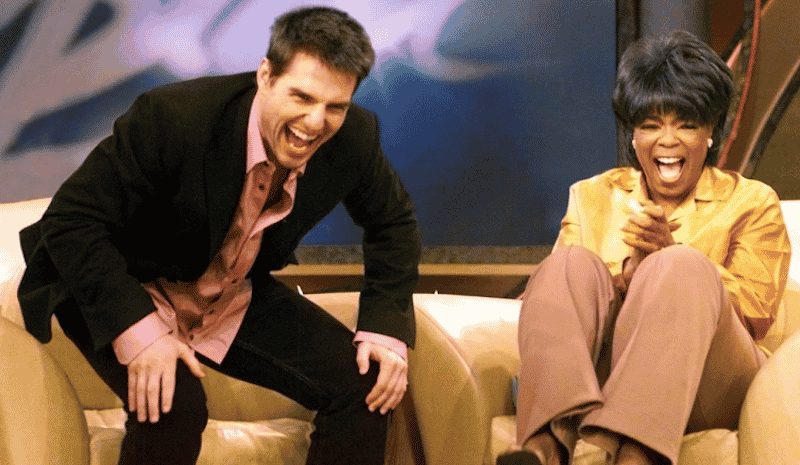"The 'don't tell' policy for surf spots is an extension of surf nazi culture, the legacy of Miki Dora. Its roots are in racism and colonialism.”
Readers of the New York Times have reacted with pearl-clutching horror at a story on surfing’s culture of protecting secret spots from exposure on social media.
“Publicizing certain surf spots, and especially ones off the beaten path, is similar to violating the first rule of Fight Club,” writes Adam Elder in The (No Longer) Secret World of Surf Spots.” You just don’t talk about certain surf spots. For years, surfers, surf magazines and surf photographers mostly lived by that unwritten law in order to keep surfing’s secret spots secret. Don’t take photos, and if you must, don’t identify it by anything more specific than the region, the country or even the continent.”
Devon Howard, the former commissioner of the longboard World Surf League, handsome as hell, keeper of a beautiful upswept hairdo, holder of dangerous opinions, provides a useful analogy.
“There are people who feel like they’ve tended a garden for years, and then you come in with a dirt bike and do some doughnuts and peel out in it, kicking up dirt in their face.”
The Times, a cherished weapon in the left-winger’s arsenal against the tsunami of racism and transphobia sweeping the US, also quotes Chris Burkard, Journal photo editor Grant Ellis and Canadian surfer Josh Mulcoy.
Readers reacted with horror over the concept that keeping a few surf spots under the radar might be a good idea citing it as a white ideal, a vestige of western colonialism with National Socialist overtones.
A small sample of the 300-plus comments.
The “don’t tell” policy for surf spots is an extension of the surf nazi culture, the legacy of Miki Dora. Its roots are in racism and colonialism.
Only a damaged individual refuses to share a gift bestowed upon them by nature. Lacking the tools of friendship, they select violence to deal with uncomfortable change.
Anyone want to bet how many non white and female surfers were let in on the secret wave spots? Not very many, I’d guess. This reads, to me, like a white men’s club suddenly mad they have to share.
I’ve always thought surfers who think a place belongs to them as thuggish. You didn’t pay to privatize that area for you and your friends. You don’t own title to it.
Loving the sport of surfing requires inclusivity, and gatekeeping public areas for the sake of your own sesh and at the expense of the development of other surfers is childish and selfish.
The concept of Wilderness is a myth that is part of our colonial legacy. Humans have always been a part of the environment, but the large scale removal and extermination of indigenous people has contributed to the idea that Westerners are discovering “remote, wild places.” Better to think of them as intentionally depopulated places.
Other than native Pacific Islanders there is no surfing culture that merits the hoo-ha described here. Rich white surfers are going to bump elbows and and I don’t care.
And, this real good for it’s a difficult one for the Times reader to process. ie. bad locals, but locals probably indigenous to islands ergo good, fighting bad, but so is police intervention, defund the police etc.
Surfing Waikiki one day on a long board, I was attacked by a local who did not like the fact I was on a long board in his surf break, even though there were plenty of open rides. I fought back as he and his friends pummeled me. I was able to paddle away but they still followed me to the beach, and then tried to pummel me again. Luckily the police were around.
Where do you stand?
